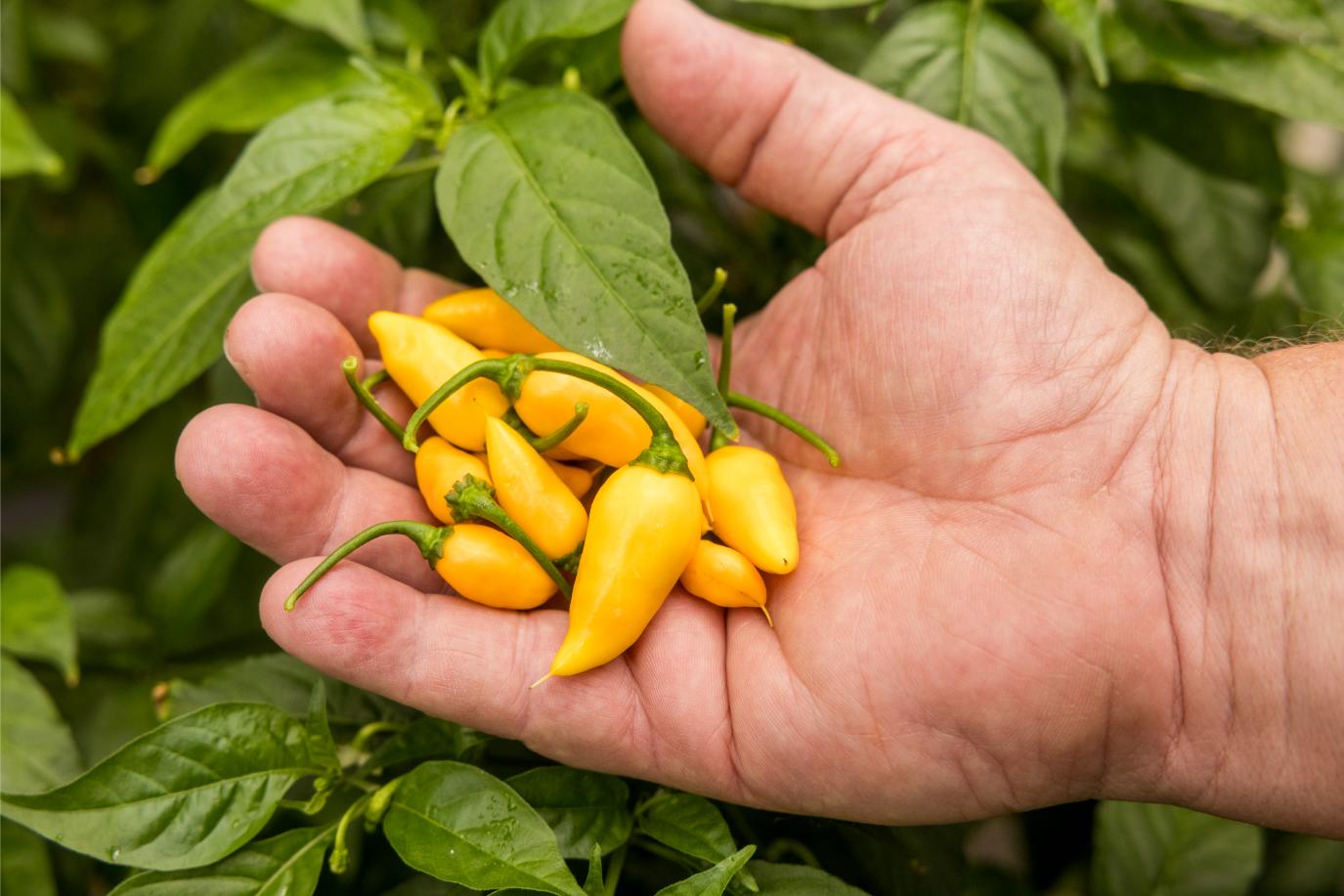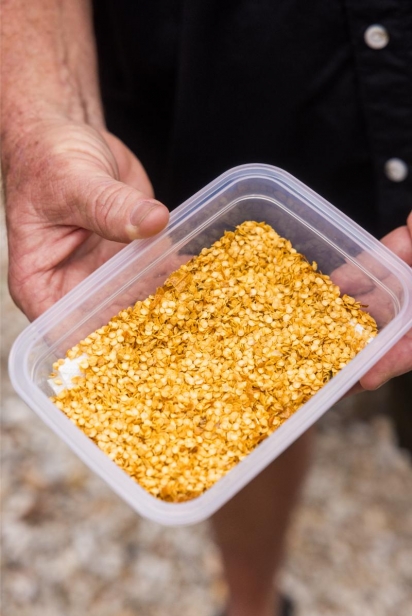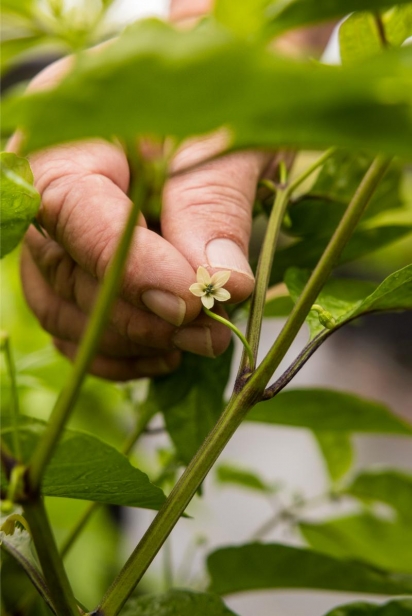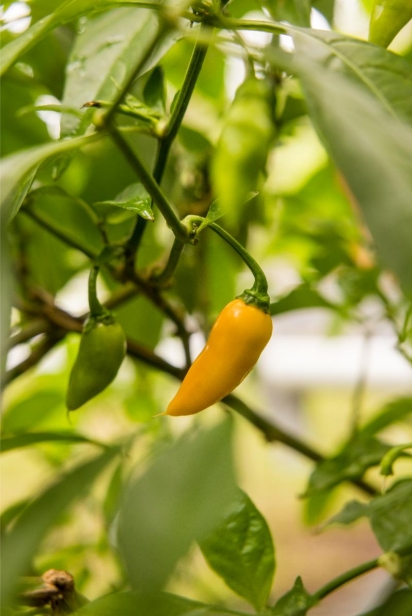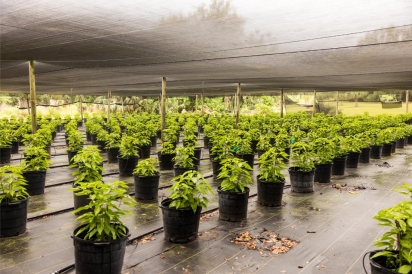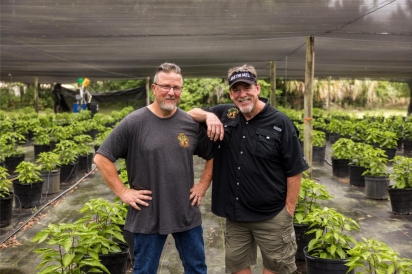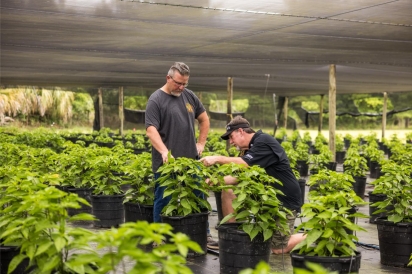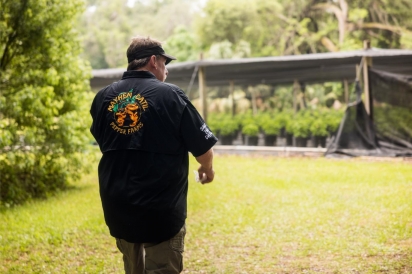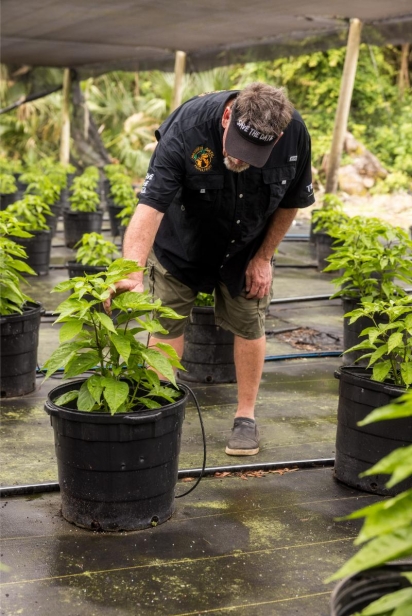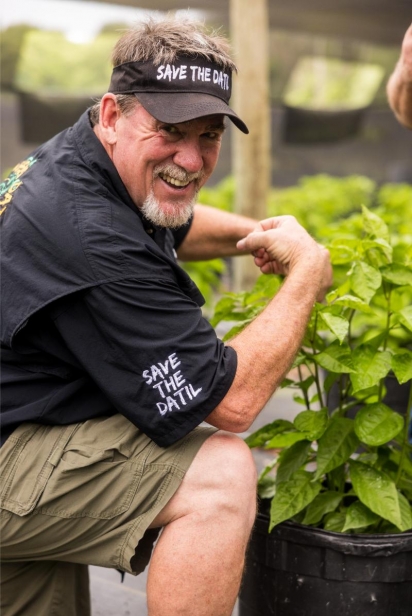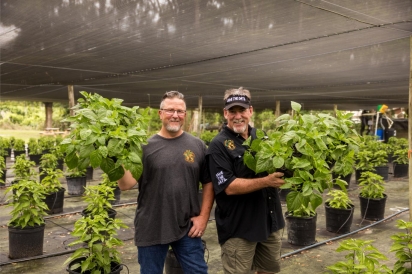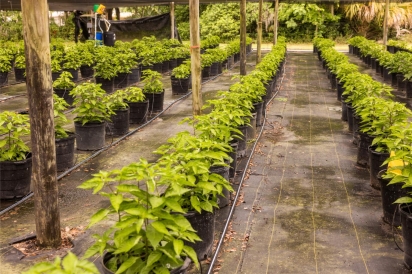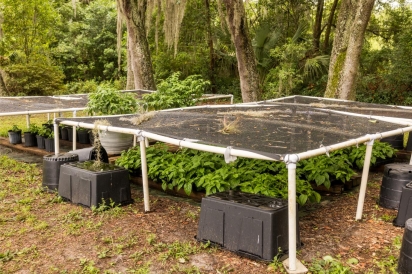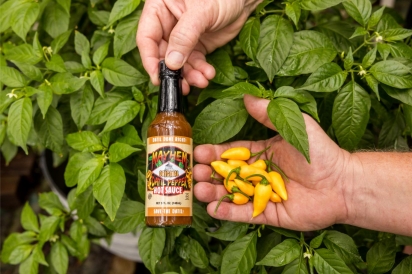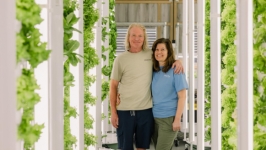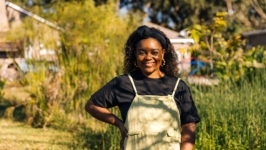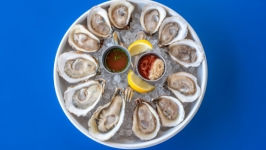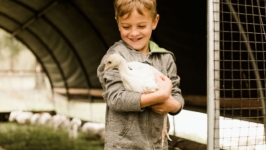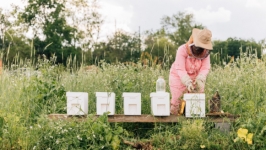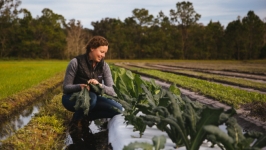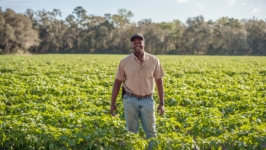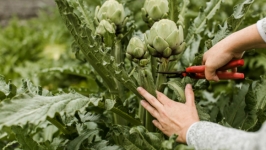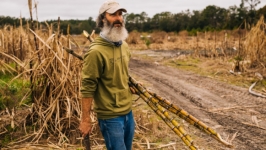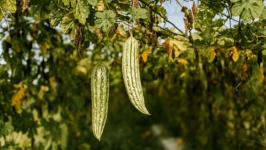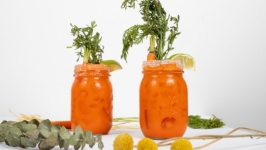Datil Work
Small, sweet and incredibly hot, datil peppers are among the most iconic foods in the history of First Coast cooking. Grown commercially in and around St. Augustine for well over a century, the delectable datil and the potent hot sauces and jellies made from it have become ubiquitous local staples, and today, interest from people and businesses all over the country is spreading like a drop of capsaicin on a ready tongue. But can a crop whose commercial range is largely confined to the greater Jacksonville metropolitan area meet the demands of a pepper-hungry nation?
This is the conundrum facing Northeast Florida’s datil farmers. “It's a hard thing to grow on a large scale,” says Sebastien Gros, managing director at CSX Agricultural, a farming and processing company in Elkton and one of the larger datil suppliers. “It’s very labor intensive. That’s why there’s not a huge cadre of commercial datil pepper farmers around here.”
Troy Main and Scott Murray, founders of Mayhem Datil Pepper Farms in Pomona Park, agree. “There's not many growers that are crazy enough to do this,” says Main. “You can grow a couple of plants wonderfully, because you can put time and effort into those few plants. But when you multiply that by a few thousand plants, it changes everything.”
It’s not coincidental that traditionally, datil peppers have been grown on a small scale, sometimes just a few plants in the cook’s own garden. A cultivar of Capsicum chinense, the habanero-type pepper, datils are especially associated with the Minorcan community of St. Augustine. Minorcans are descendants of Mediterranean islanders, most notably people from the Spanish island of Minorca but also including Italians and Greeks, who came to Florida in 1768 to settle Andrew Turnbull’s ill-fated New Smyrna colony. When the colony collapsed, surviving Minorcans fled northward to St. Augustine, and today their descendants number 26,000 in St. Johns County.
Though one common origin myth says datils came over with the Minorcans on Turnbull’s ships, like all chile pepper plants, it hails from the New World. The earliest evidence of the peppers speaks to the way they have historically been grown, and the struggles modern farmers face in bringing them to a national scale. Around 1880, a local jelly maker named Esteban B. Valls brought in seeds from Santiago, Cuba and planted them in the garden of his house on St. George Street for use in his jellies and jams. The peppers thrived in local soils and quickly spread as a common small-scale crop.
The Minorcans are largely responsible for maintaining the datil pepper through the years, and it features widely in the community’s traditional dishes such as Minorcan chowder, a spicy tomato-based soup – for the uninitiated, think a high-octane Manhattan chowder. Still today, Minorcans remain major purveyors of datils and all the powerful hot sauces, jellies and marinades that can be made from them.
Murray is Minorcan, and for him, datils are a family tradition. He grew up making sauces and other dishes from family recipes, using peppers provided by his relatives. “I grew up eating this stuff,” he says. About 15 years ago, he introduced Main to the wonders of the datil through a homemade batch of hot sauce. “I had to coerce him,” says Murray, “but from that point on he was hooked.” “It lit a fire in more ways than one,” says Main.
Main wanted to make more hot sauce, but he and Murray quickly felt the supply pressures that now affect datil-seekers nationwide. “We couldn’t find enough datil peppers,” says Main. “We called every mom and pop grower, and nobody really had a source to give us 10 or 15 pounds.” Meanwhile, Murray realized that older relatives who’d always had peppers at the ready were no longer there to pass them on. “In my family, everybody, aunts and uncles and grandparents and all that, had always been a ready source, and they were starting not to be around anymore,” he says. “That gave us the idea that this might be something that is in danger of being lost.”
The friends decided to take matters into their own hands. They bought eight heirloom datil plants from a sale at First Coast Technical College and started cultivating, first at Main’s house in Orlando, and then on his family’s farm in Pomona Park. Before long they had more than enough peppers to bottle sauce for their family and friends. The next thing they knew, Tex-Mex chain Tijuana Flats approached them about providing peppers commercially. At that point, they knew there may be a far greater demand for datils than the limited supply would suggest.
“We wanted to keep spreading the word and get new people who've never tried this pepper before to experiment with it,” says Murray. Embracing a mission to “Save the Datil,” Mayhem has continued to expand its business, and they now supply several restaurants and sauce makers, produce their own sauces and ship seeds and peppers nationally for aspiring cooks and growers.
Gros came into datil farming after a long career as a food supplier. As managing director for the Chilean Seafood Exchange in southern Chile, he sold farmed salmon before diversifying into everything from strawberries to sustainable fibers. When he moved to Northeast Florida 10 years ago, he was itching to try something new. “I really was interested in focusing on a local product and specialty niches,” says Gros. “The datil pepper was definitely one of those things that really grabbed my attention. I appreciated it came from this region, and that people have made some really creative things out of them.”
CSX Agricultural’s foray into datil farming paid off when they were approached by the makers of Zab’s, a hot sauce producer from California. “They were young and energetic and former chefs,” says Gros. “And they weren’t looking for an enormous volume. So we started supplying them.”
Gros understood that building a national brand would require a sufficient long-term supply. A s no such supply existed for datil peppers, he determined to create one. “Since then, we've implemented a pretty disciplined seed selection and breeding program to really enhance our yields," he says. To ease the difficulty of growing and harvesting datils, CSX Agricultural uses greenhouses and shade houses to control the environment. This has allowed the business to expand, but the inherent challenges of the plant remain. “Man, there's just no two ways about it," says Gros. "We're manually picking. There’s no datil pepper harvester.”
Regardless of the challenges, both the Mayhem team and Gros are optimistic about the future of commercial datil farming. The demand is there, and it’s growing. When Zab’s first approached Gros, he questioned the feasibility, but he was quickly convinced. “I was like, are these guys from California really going to be successful in launching this on a national basis?” he says. “The truth is, they've been very successful, because everybody's intrigued by that pepper.”
Main and Murray are encouraged by the strong reception they’ve gotten from people across the country who are now able to access datil peppers and grow their own. “Every year it continues to expand and expand out,” says Main. “People from all over send us wonderful notes and reviews telling us how much they appreciate we're still doing this. It really all goes back to this: saving the datil pepper. That's what we’re going to do."


